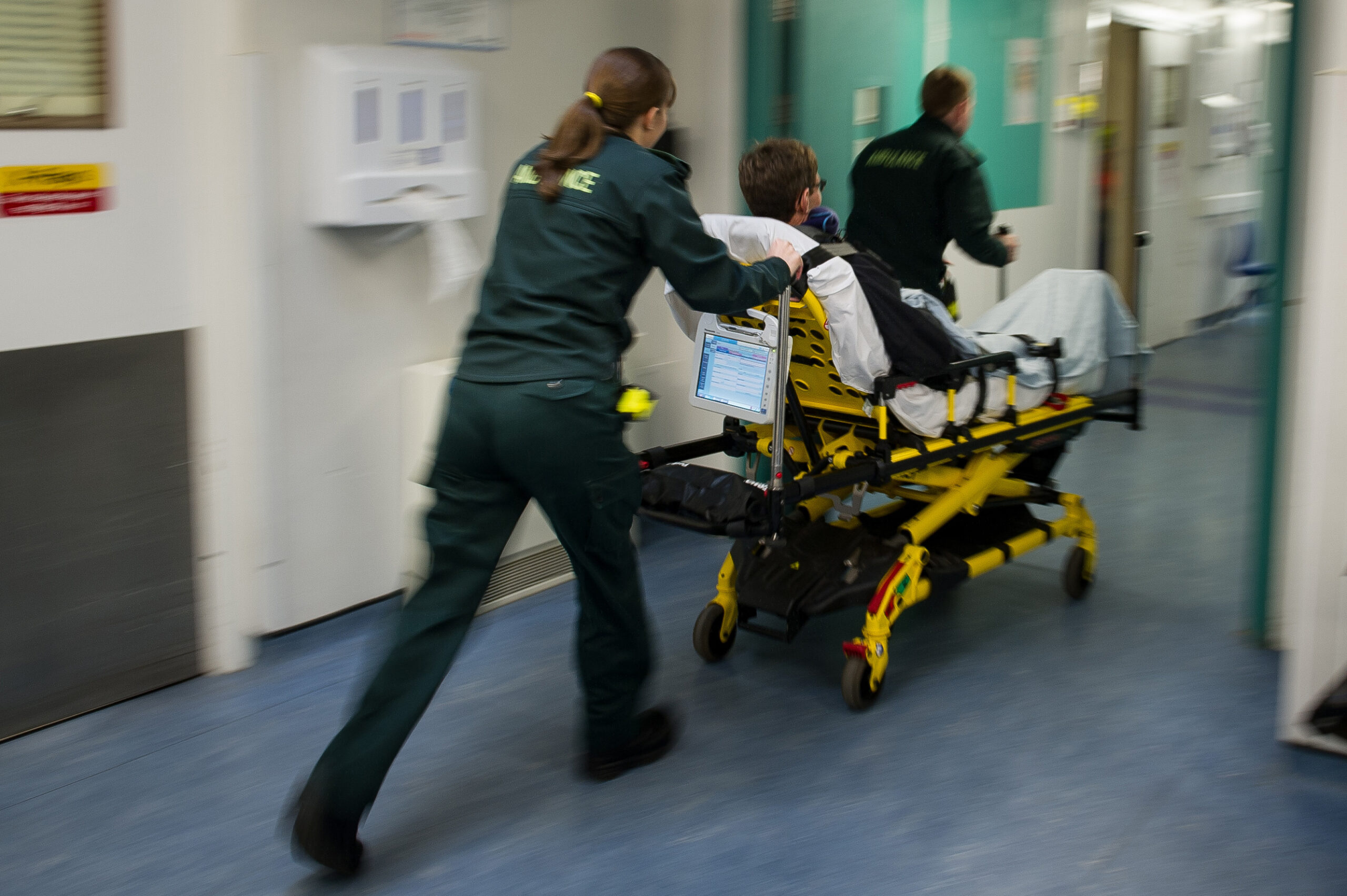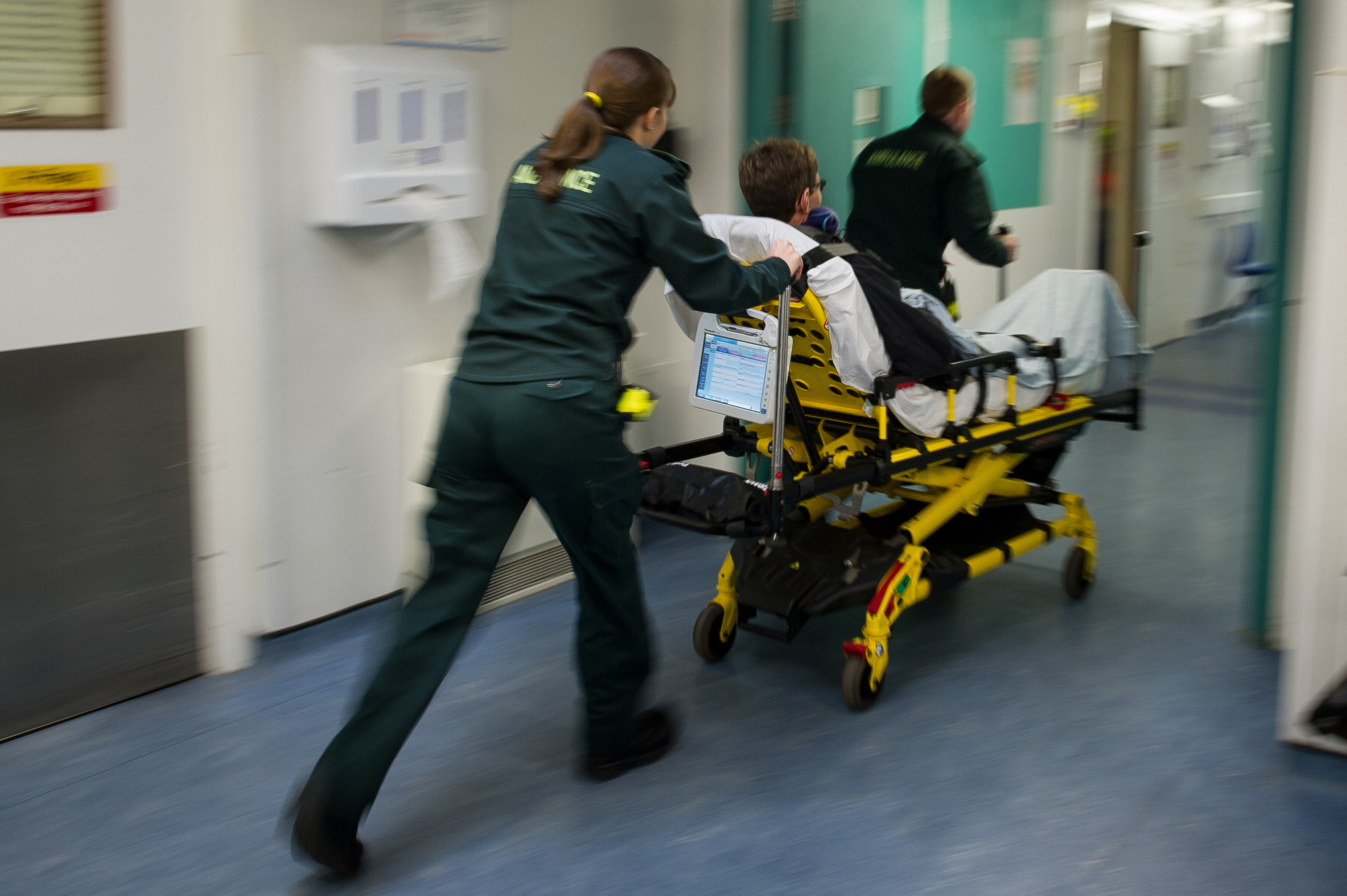Background
This trial, led by the University of Warwick, aims to improve the outcome for patients suffering cardiac arrest (when the heart stops beating) outside of the hospital environment. Of the 30,000 people experiencing this catastrophic event each year, no more than 7% survive to hospital discharge.
If you want more information or to request an opt-out bracelet please contact the ‘trial team’ on 02476 151164 or email at paramedictrial@warwick.ac.uk. Alternatively fill in the form found here. These contact details will also be used these to advise you when to stop wearing the bracelet.
Although the drug “adrenaline” has been used as part of the standard treatment of cardiac arrest since the 1950’s, there have never been any trials to show whether it is of benefit or not. This trial will look at whether adrenaline, which can be administered during resuscitation, improves a person’s chance of survival to hospital discharge. It had been assumed that by stimulating the heart, adrenaline may improve the chances of successful resuscitation. However, some recent studies have suggested that although adrenaline may indeed help ‘restart’ the heart, the chances of survival in patients given adrenaline may actually be worse. This may be because when adrenaline stimulates the heart it increases the amount of oxygen required by the heart which may, in turn, reduce the amount of oxygen available to the brain.
How the trial will work
The International Liaison Committee on Resuscitation, European Resuscitation Council and Resuscitation Council (UK) which all set the current resuscitation guidelines, have identified the urgent need for a clinical trial to look at whether current adrenaline therapy is safe and effective.
The only way to do this is by a type of research study called a randomised trial comparing adrenaline with a placebo (saline), in which neither the clinician nor the patient is aware of the group into which they have been randomised. Adult patients who suffer cardiac arrest, and where advanced life support is given, will be eligible for the study. Those who are pregnant, suffering from anaphylaxis or where adrenaline has been given prior to ambulance arrival will not be enrolled in the trial.
At a cardiac arrest where adrenaline is indicated, clinicians will be supplied with a pack of trial drugs, which will be used in place of standard adrenaline syringes. Patients will be followed up in hospital and the study investigators will compare what happens to the two groups of patients (those who received adrenaline and those who received placebo).
Opt-out
Members of the public who do not wish to be enrolled in the PARAMEDIC-2 trial can choose to opt-out by requesting a stainless steel bracelet which has the words ‘NO STUDY’ engraved on it.
Local paramedics will be trained to look for these bracelets in the same way they do for other medical ID bands. This means that, in the event that you have a cardiac arrest, you will receive standard treatment which may include adrenaline. This system is used successfully in North America for a number of trials.
You should wear this bracelet for the duration of the trial and will be contacted at the end of the trial to inform you that you no longer need to wear the bracelet.
Further information
The trial, funded by the National Institute for Health Research and.co-ordinated by the University of Warwick in collaboration with the University of Surrey, has received Research Ethics Committee approval and Medicines & Healthcare products Regulatory Authority (MHRA) approval. It involves five ambulance Trusts (South Central Ambulance Service, London Ambulance Service, West Midlands Ambulance Service, Welsh Ambulance Service & North East Ambulance Service) and aims to recruit a total of 8,000 patients: the number needed to be sure that any benefit or harm from adrenaline can be detected. The data will be analysed at stages as the trial progresses so that if a difference is detected sooner, the trial can be stopped.
It is usual practice to obtain informed consent from patients to participate in research studies. Inevitably, there are ethical challenges and concerns involved in a trial where patients are unconscious and cannot give their agreement to take part. This has been a concern for researchers working in the pre-hospital setting for some time and has recently been highlighted in the press. It has been suggested that if patients are unable to give consent, either because they are in an emergency situation or are unconscious, they should not be included in a research trial. However, this would severely reduce the opportunities for improving the care of patients suffering conditions such as cardiac arrest. A number of years ago this was debated at the highest level in the UK Government and the European Union. A new law was drawn up that allowed researchers in specific emergency situations to enroll patients in a study without obtaining consent (waiver of consent) so long as consent was obtained as soon as reasonably possible after the patient was able to make a decision. The law regarding informed consent in an emergency situation is set out in Statutory Instrument 2006 No. 2984, The Medicines for Human Use (Clinical Trials) Amendment (No2) Regulation 2006. With appropriate regulatory control, studies of this group of patients are the best way to improve outcomes for those suffering such conditions in future.
The British Heart Foundation Medical Director, Professor Peter Weissberg, said: “It is important to remember that whilst adrenaline is routinely used to treat a cardiac arrest, we don’t actually know whether this is a safe and effective practice. The concern is it could be doing patients more harm than good. The only way to answer this crucially important question is to do a well-designed clinical trial. It is always difficult to conduct a trial in situations where people are too ill to give their consent. But there are well established ethical guidelines for undertaking such studies. What is unacceptable is to continue giving a treatment that could be doing more harm than good. Only by undertaking difficult studies of this kind can we be sure that patients are receiving the highest possible standard of care and have the best chance of a good outcome.”
South Central Ambulance Service will be starting a small pilot study in February, followed by wider implementation in April.
For more information please find a Frequently Asked Questions document and other relevant trial documentation at http://www2.warwick.ac.uk/fac/med/research/hscience/ctu/trials/critical/paramedic2/faqs/
Funding Acknowledgement:
This project was funded by the National Institute for Health Research Health Technology Assessment programme (project number 12/127/126)
Department of Health Disclaimer:
The views and opinions expressed therein are those of the authors and do not necessarily reflect those of the Health Technology Assessment Programme NIHR, NHS or the Department of Health.


